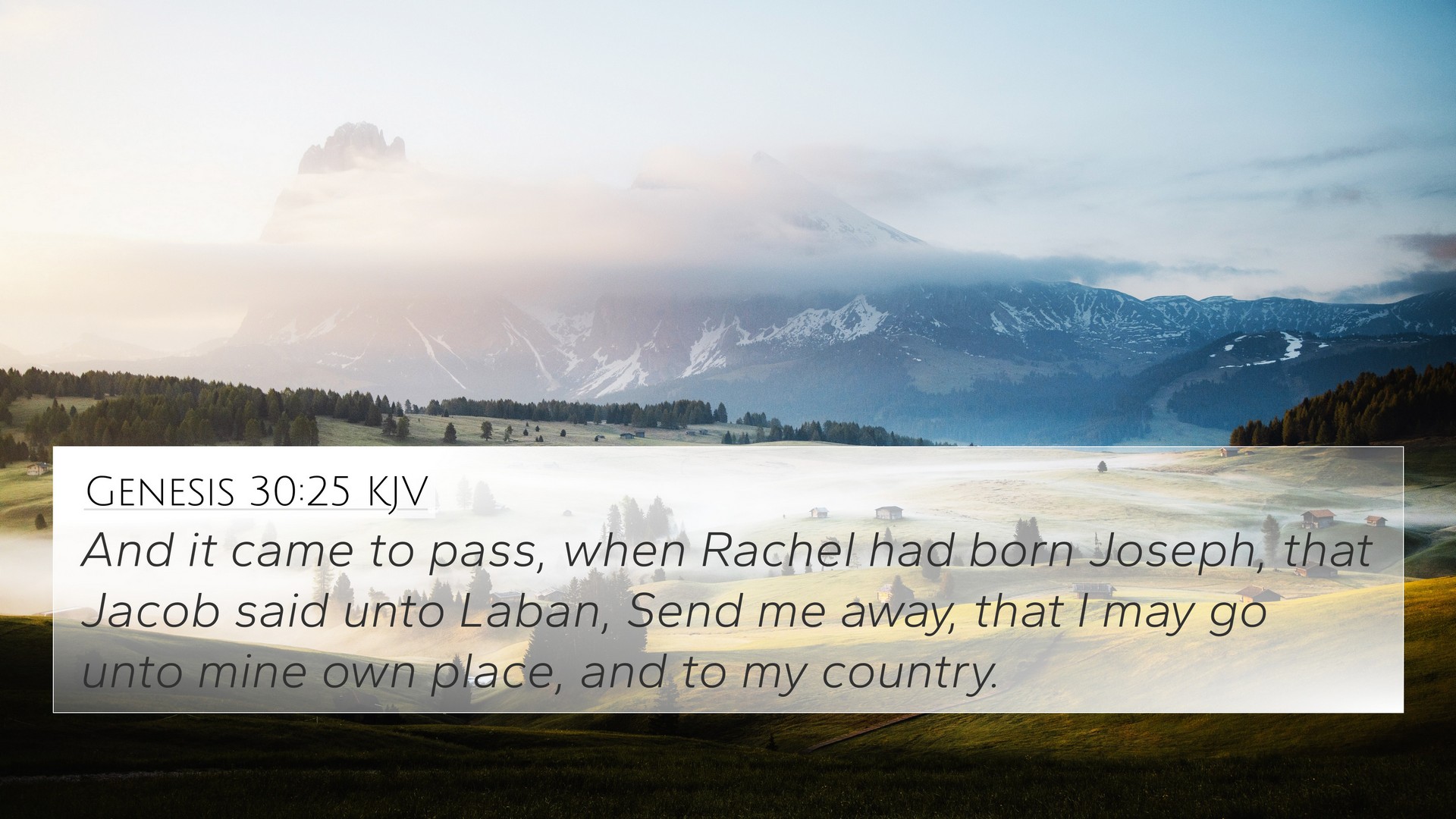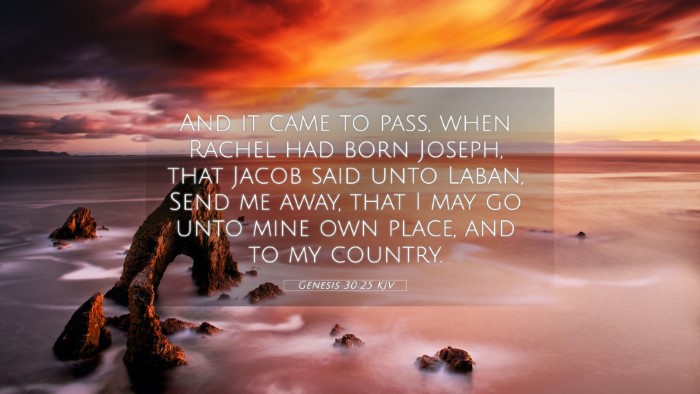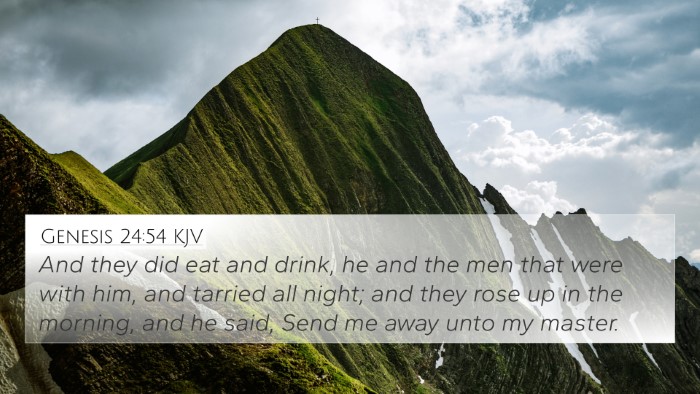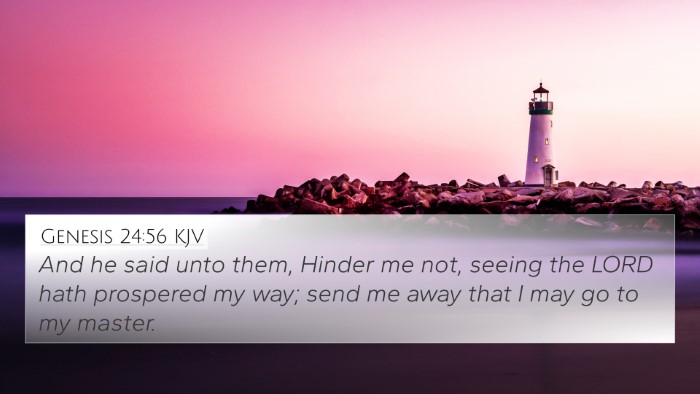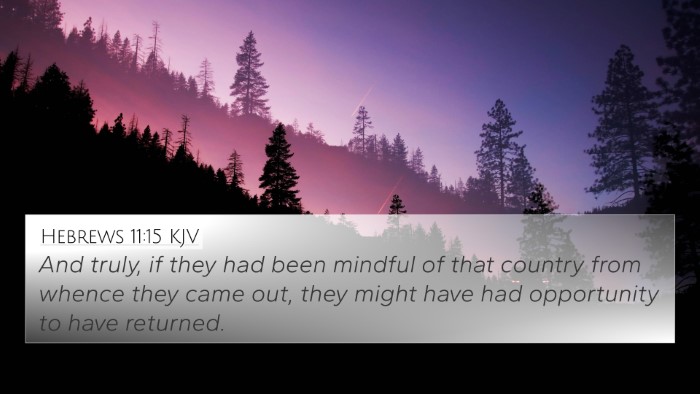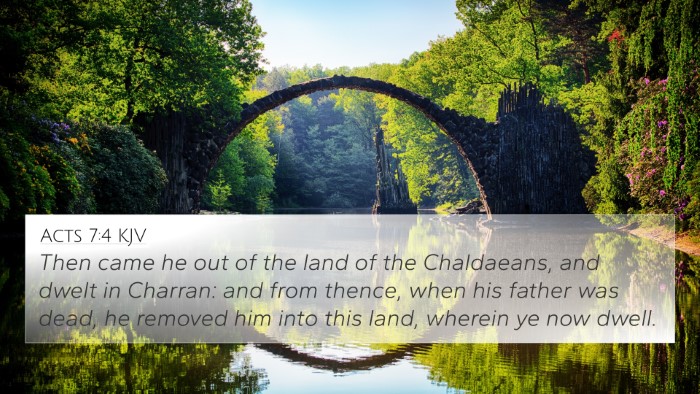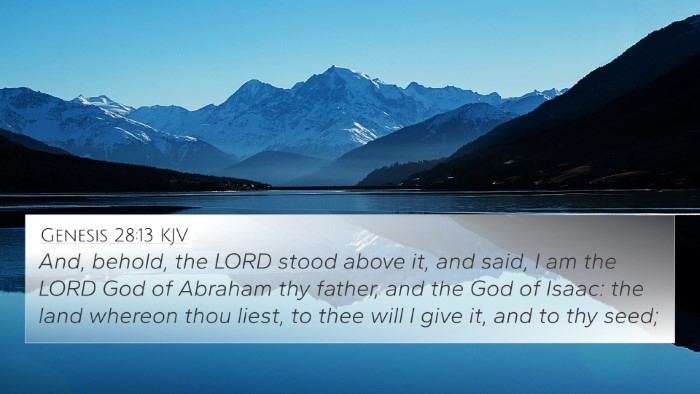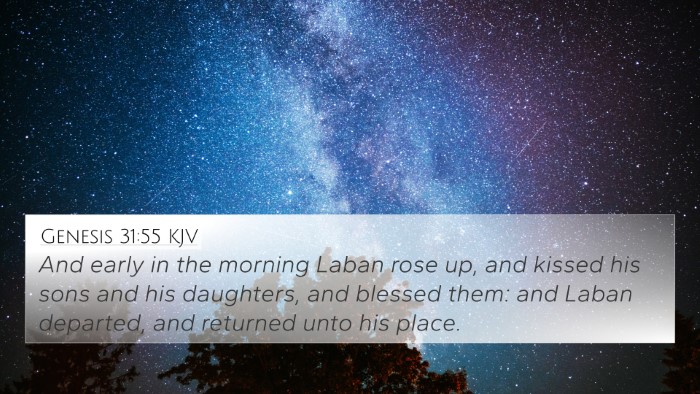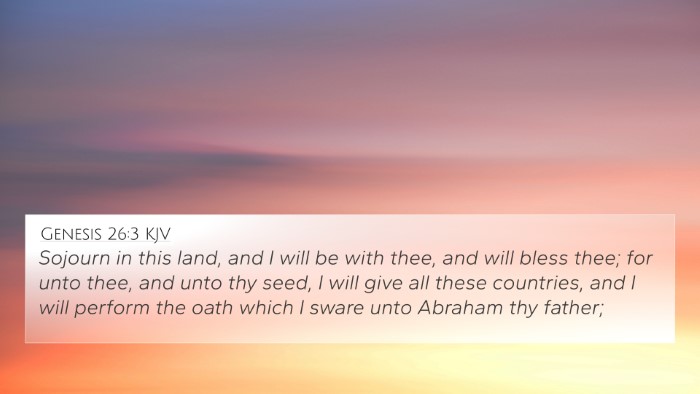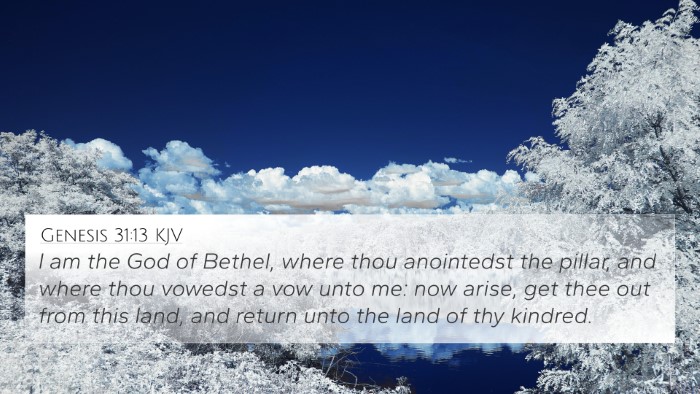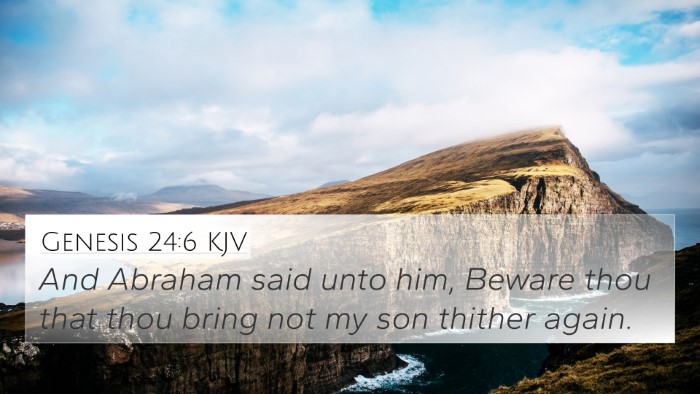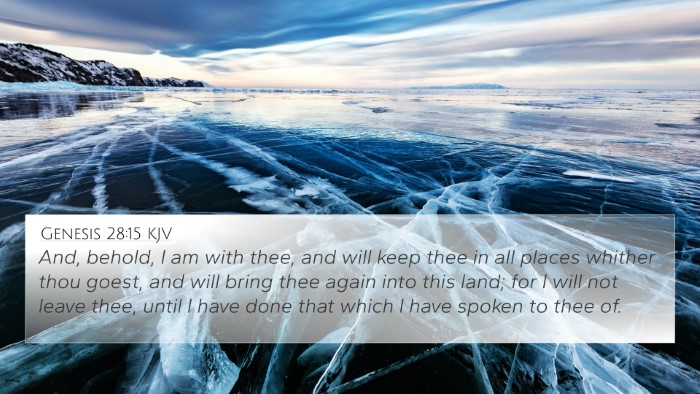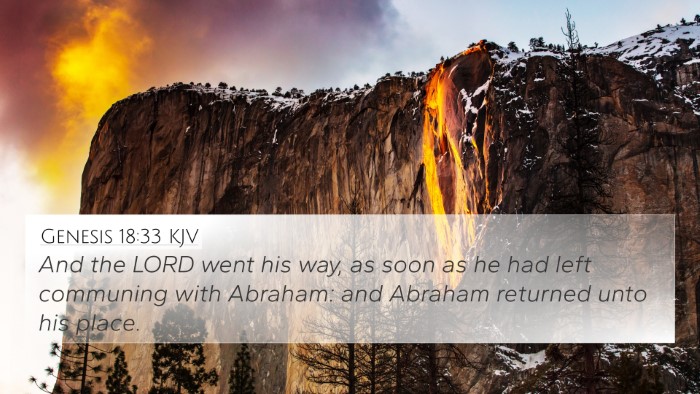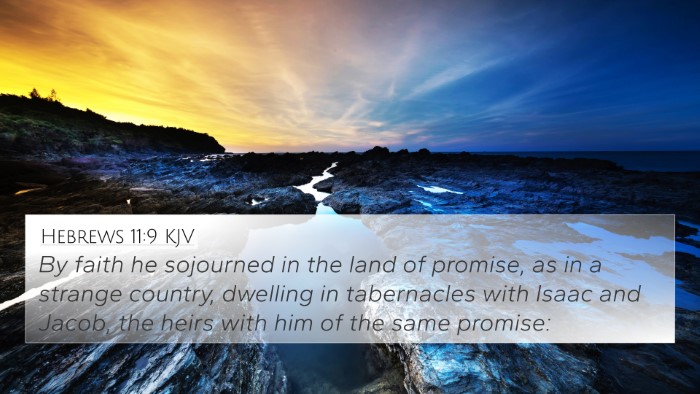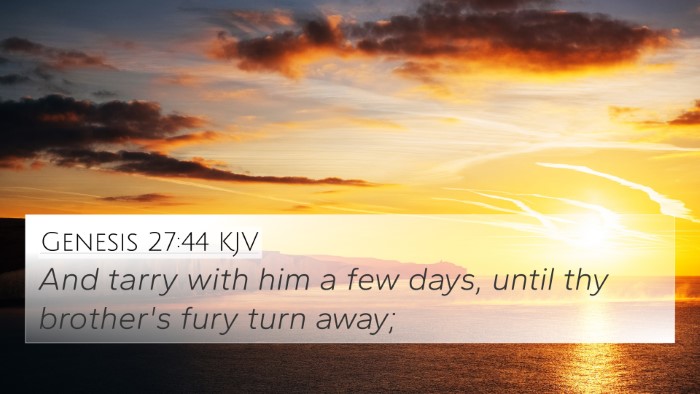Genesis 30:25 reads: "And it came to pass, when Rachel had borne Joseph, that Jacob said unto Laban, Send me away, that I may go unto mine own place, and to my country."
In this verse, we witness a pivotal moment in Jacob's life—a transition marked by the birth of his son Joseph. This significant event not only represents a personal milestone for Jacob but also symbolizes the unfolding of God's covenant promises to him.
Here, we summarize insights on Genesis 30:25 based on public domain commentaries, particularly those by Matthew Henry, Albert Barnes, and Adam Clarke.
Interpretation and Meaning
-
The Significance of Joseph's Birth:
According to Matthew Henry, Rachel's birthing Joseph is an essential part of God's plan for Israel, illustrating God's providence amid human struggles. Joseph symbolizes hope and restoration, demonstrating God's faithfulness to fulfill His promises.
-
Jacob's Decision to Leave:
Albert Barnes observes that Jacob's request to Laban for departure signifies a desire for autonomy after years of labor. It reflects both his growth and the culmination of his trials, as he is now ready to return to his homeland, fulfilling God's direction.
-
Covenant Themes:
Adam Clarke elaborates on the implications of Jacob's journey back to his homeland. It aligns with the covenant that God made with Abraham, Isaac, and himself, reiterating the importance of land and progeny—key elements in the biblical narrative.
Bible Verse Cross-References
Several verses resonate with Genesis 30:25, illustrating its themes of promise, journey, and fulfillment:
- Genesis 28:15 - God promises Jacob, "I am with thee, and will keep thee in all places whither thou goest."
- Genesis 12:1 - God's call for Abraham to leave his country aligns with Jacob's similar call to return.
- Jeremiah 30:10 - A promise of restoration that echoes through the generations, affirming the theme of returning.
- Genesis 50:24 - Joseph speaks of returning to the land promised to the patriarchs, linking their stories.
- Genesis 31:3 - God's command to Jacob to return to his homeland emphasizes divine guidance.
- Genesis 32:1 - Jacob prepares to meet Esau, showcasing his transformation and readiness for reconciliation.
- Exodus 3:8 - God's promise of deliverance and journeying back to the land reflects the aspirations of Jacob's family.
Thematic Bible Verse Connections
The narrative of Genesis 30:25 also serves as a thematic connection within scripture, representing the overarching journey of God's people:
-
Journey and Identity: The exploration of identity through Jacob’s journey back to his origins highlights the importance of knowing one's heritage and divine calling. This theme of self-discovery resonates throughout the Bible.
-
Divine Providence: The continual unfolding of God's plans through trials and tribulations emphasizes His unwavering presence in the lives of His chosen people.
-
Family Restoration: Jacob's relationship with his sons, particularly through Joseph, points to forgiveness and reconciliation, which are prevalent themes in both Old and New Testaments.
Conclusion
Genesis 30:25 encapsulates a critical moment of change and growth in Jacob’s life, as well as in the broader narrative of the Israelites. Through the insights derived from public domain commentaries, we discern that this verse transcends mere familial interaction and moves into the realm of divine strategy for His people.
Understanding this verse within its inter-biblical context enriches our appreciation of scripture, highlighting the significant connections between Bible verses. The thematic connections and cross-references anchor this passage within a larger biblical framework, illustrating how integral each event is to God's overarching plan for humanity.
